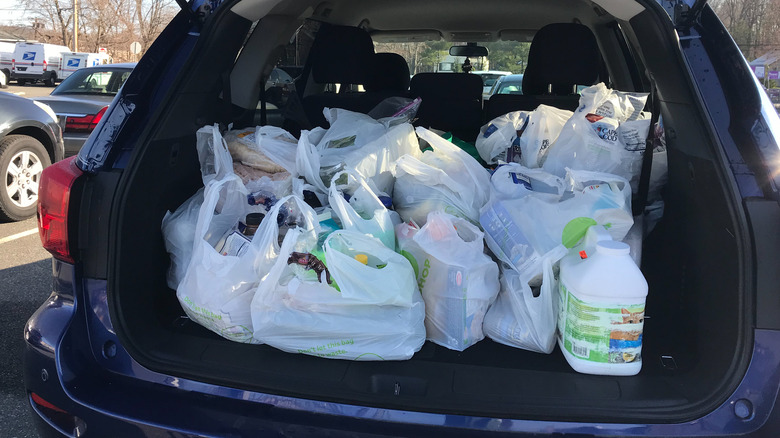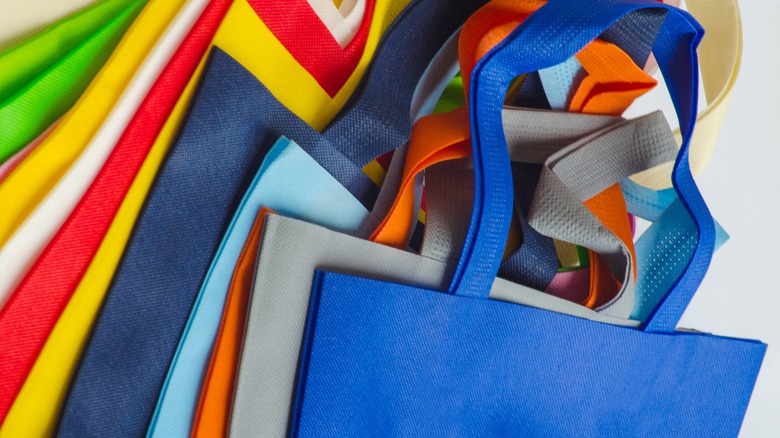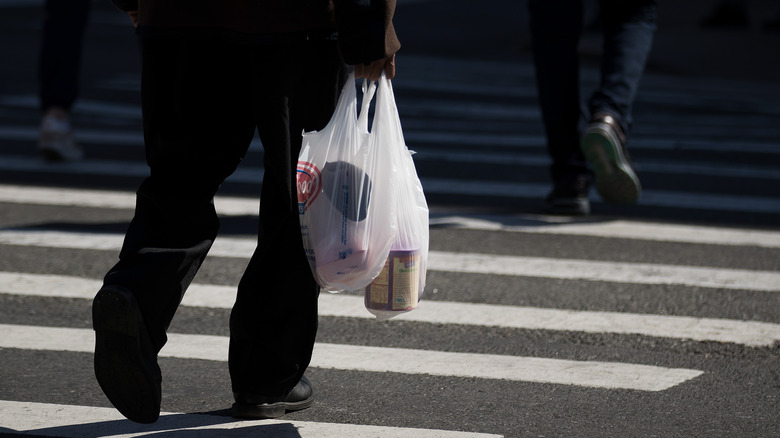The Unexpected Way A Single-Use Bag Ban Affected Some New Jersey Residents
It may feel as though they've been around forever, but polyethylene — or plastic — shopping bags weren't actually used widely across the United States until 1982 — the year Safeway and Kroger dropped the paper bag to start using plastic per the UN Environment Programme. By 2011, one million plastic bags were said to be used every minute, and today the UN Environment Program says one trillion bags are produced every year.
Single-use bags may be cheap and easy to produce, but the UN points out that plastic has been also named as a culprit in a host of environmental problems, from the clogging of drainage systems to threatening marine life. No surprise then, that many governments around the world are banning the bag in an effort to curb plastic pollution.
And while the state of New Jersey may not be the first to ban single-use plastics in the country — that honor goes to California, which passed a ban on bags in 2014, per the National Conference of State Legislatures – it may be the first whose residents have come forward to admit that the legislation, along with the increase in online grocery shopping, has created real-world consequences that could end up being as bad for the environment as the single-use bags themselves.
The number of reusable bags has grown exponentially
Online grocery shoppers say that since the single-use ban was announced in May of 2022 per Business.NJ.Gov, many have been receiving their orders packed in reusable bags — and a few now say they have so many of these bags they don't know what to do with them, per The New York Times. One habitual online shopper is so inundated by the sheer number of bags that he now has 101 of them; another has told the New York Times that she has 74 and that she "[doesn't] know what to do with all these bags."
Part of the problem is that businesses have not adapted their business practices to accommodate the single-use bag ban. As one gig worker affiliated with Instacart tells the New York Times, "They pretty much said, 'OK, do exactly what you're doing, but with reusable bags.'" She says she now goes through 50 reusable bags a day.
Reusable bags need to be reused if they are to be good for the environment
The rising number of bags that can be found in New Jersey homes is alarming because these bags, which are usually made with synthetic materials like polypropylene, need to be reused multiple times before they have a positive environmental impact on the environment. As Deakin University Lecturer Trevor Thornton writes in The Conversation, "non-woven polyethylene bags should be used at least 11 times, paper bags should be reused three times, while cotton bags need to be reused at least 131 times". Thornton, who is affiliated with the University's School of Life and Environmental Sciences also points out that most shoppers actually forget their reusable bags at home, and go back to taking plastic shopping bags when they are out and about.
New Jersey legislators like state senator Bob Smith admits there was a problem in the execution of the law, and he's told the New York Times that "There's clearly a hiccup on this, and we're going to solve it." University of Michigan professor for Environment and Sustainability Shelie Miller says the explosion in reusable bags reveals the darker side of well-intentioned environmental policies which end up poorly executed. She says: "If we don't pay attention to the unintended impacts of policies such as the plastic waste ban, we run into the potential of playing environmental Whac-a-Mole. "We solve one environmental problem only to create or exacerbate another problem."


